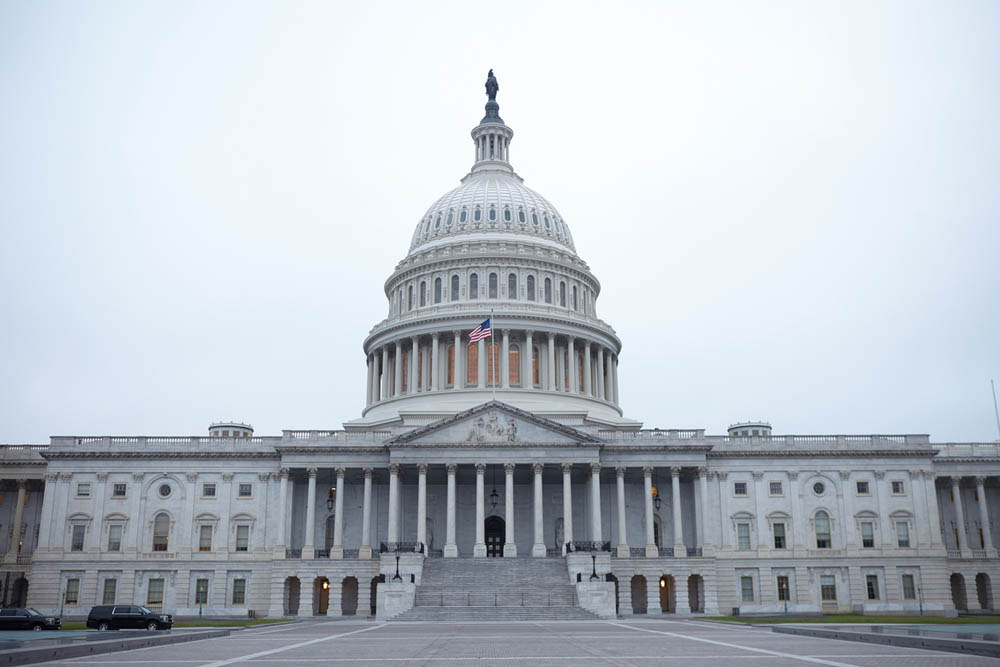Schumer and Durbin act as if they’d rather have an issue to use against the Republicans in November.
Officially, Republicans and Democrats in Congress are working to craft an immigration fix before the March deadline set by President Trump to wind down a program that protects the so-called Dreamers brought here illegally as children. Unofficially, you have to wonder how much interest Democrats really have in reaching a compromise.
First, we had Dick Durbin of Illinois, the No. 2 Senate Democrat, stroll out of a private meeting with the president and share with the media Mr. Trump’s crude remarks about immigrant homelands. Mr. Durbin had to know that by publicizing the alleged comments, he was jeopardizing any potential deal. His intent was to sabotage the discussions, not advance them.
A few days later, after the White House released an immigration framework detailing the president’s priorities, Senate Minority Leader Chuck Schumer rejected it out of hand as a “wish list” for “anti-immigration hard-liners.” Given that those hard-liners dismissed the very same White House framework as a sop to Democrats like Mr. Schumer, the senator’s criticism seems rather curious.
The administration’s proposal includes a multiyear path to citizenship for Dreamers, an end to the Diversity Visa lottery, a reduction in family-based migration, an increase in merit-based visas, and funding for additional barricades along the Mexican border. None of those provisions, mind you, come out of the blue. All of them were included in a bipartisan immigration bill that passed the Senate in 2013, with support from Messrs. Schumer and Durbin, before dying in the House. At least the immigration restrictionists are being consistent.
Nor are these political theatrics limited to Democrats in Washington. Progressives at the state and local levels are just as keen on undermining the Trump administration whenever possible. Last week New York Mayor Bill de Blasio described the Justice Department’s crackdown on sanctuary cities as a “racist assault on our immigrant communities” and then refused to meet with the president. Meanwhile, California’s attorney general, Xavier Becerra, has threatened to prosecute employers who help federal immigration officials identify people in the country illegally. Mr. Becerra said businesses that share employee information with immigration agents will face fines of up to $10,000. In other words, California is promising to punish people for obeying federal law.
The Democrats don’t sound like a party that wants to tackle immigration reform and help productive people who find themselves in America illegally through no fault of their own. They sound like they’re looking for an issue to run on in the November midterm elections. For a taste of what’s coming, Nancy Pelosi, the Democratic leader in the House, called the White House immigration proposal an effort “to make America white again.”
Everyone knows that Donald Trump made The Wall a central plank of his campaign, and Democrats are now feigning shock that additional border security is a precondition of broader immigration reform. They’re also playing down Mr. Trump’s willingness to compromise.
Marc Short, the White House director of legislative affairs, explained on “Fox News Sunday” that the administration initially planned to extend protection only to the 690,000 Dreamers who received work permits under the Obama -era Deferred Action for Childhood Arrivals program. Democrats, however, wanted to include a larger number of people who were eligible for DACA but too afraid to apply.
The White House complied, said Mr. Short, and the resulting proposal went “further than many people thought [the president] would in providing not just permanent residence but also a pathway to citizenship for roughly 1.8 million people.”
More fencing along the Southwest border is not likely to have much impact in itself on unlawful entries. According to the Department of Homeland Security, illegal border crossings, which peaked in 2000, fell by another 24% last year to their lowest level since 1971—and that’s with some physical barriers already in place. Border security is not immune to the law of diminishing returns.
Whether or how long these trends continue probably has more to do with the U.S. economy than anything else. The most troubling aspect of the White House plan is the attempt to reduce legal immigration at a time when economic growth has quickened and more industries are reporting job shortages even after offering higher wages. Adjusting the mix of high-skill, low-skill and family-based immigration to match the labor demands of a modern economy is fine and perhaps overdue. But it would be a mistake for the administration to insist on antigrowth immigration policies that undermine pro-growth tax reform in hope of appeasing restrictionists who mistakenly view labor markets as a zero-sum game.
For their part, Democrats must decide if it’s worth keeping the Dreamers in limbo for the sake of opposition to a wall in particular and Mr. Trump generally. The president seems to understand that he’s not going to get everything that he wants on immigration. When will Democrats reach the same realization?
This piece originally appeared in The Wall Street Journal
______________________
Jason L. Riley is a senior fellow at the Manhattan Institute, a columnist at The Wall Street Journal, and a Fox News commentator.
This piece originally appeared in The Wall Street Journal
